The Auckland Council kerbside food scraps service has been a popular topic around our kai tables. Maia stopped Tracey (Fair Food Head of Operations & Relationships) for a few minutes to get her thoughts.
Since the food scraps bin has been introduced into Tracey’s household, it has significantly decreased the amount of kai going into the landfill in her whare.
Tracey lives with her partner Joe. Over the years, she has perfected portion sizes for her and Joe. If there are leftovers, it will be used as lunch the following day. Almost nothing goes to waste. Yet, they used to fill their rubbish bin weekly, spending $4.80 on bin tags every week.
Even though it’s just the two of them, they host a lot of people at their house and always make sure everyone is well fed. “In our household, our whole family and social time revolves around kai, it brings everyone together” says Tracey. Since having the food scraps bin, their landfill bin only goes out on the curbside every 2-3 weeks, saving them over $120 a year!
Tracey says, “When everything goes into the same bin, you can miss what’s actually going to waste.” When separating the food scraps from the rest of her rubbish, Tracey noticed how much soft plastics were going into the landfill. Soft plastics cannot be recycled in the recycling bin because they’re too small and get tangled up in the machines.
Tracey now takes her soft plastics and recycles them at her nearest recycling soft plastics station.
Tracey couldn’t believe how easy the food scraps bin is to use. If she knows there will be lots of off-cuts or scraps, she will pop them into an old ice cream container and then transfer it into the white bin afterwards to keep her cat out of it!
Tracey said she’s been lucky because the bin doesn’t smell. Although you can, she doesn’t usually put any wet items in the bin, so it’s been fine.
She always ensures they always put on a good feed and take pride in making sure they feed the whānau, and that everyone leaves with full bellies and extra kai for later. The relationship between social time and food is important for maintaining connections with her children and grandchildren. The food scraps bin is good for the parts of kai that people don’t eat, like citrus peels and bones.
With the cost of living crisis, it feels wrong to waste food. Last week, Tracey bought 4 medium-large potatoes and it cost $4.50! You’d be sure none of that went into her food scraps bin. Healthy kai is so expensive, so it needs to be cherished. Making the most of the food we buy is so important to decrease the amount of greenhouse gases entering our atmosphere.





